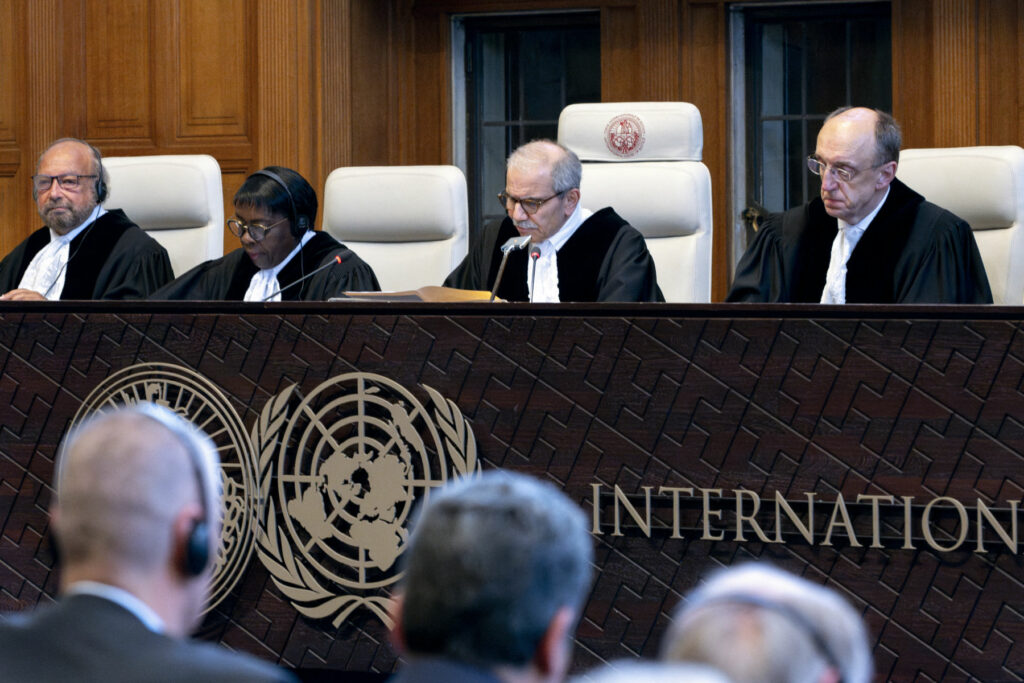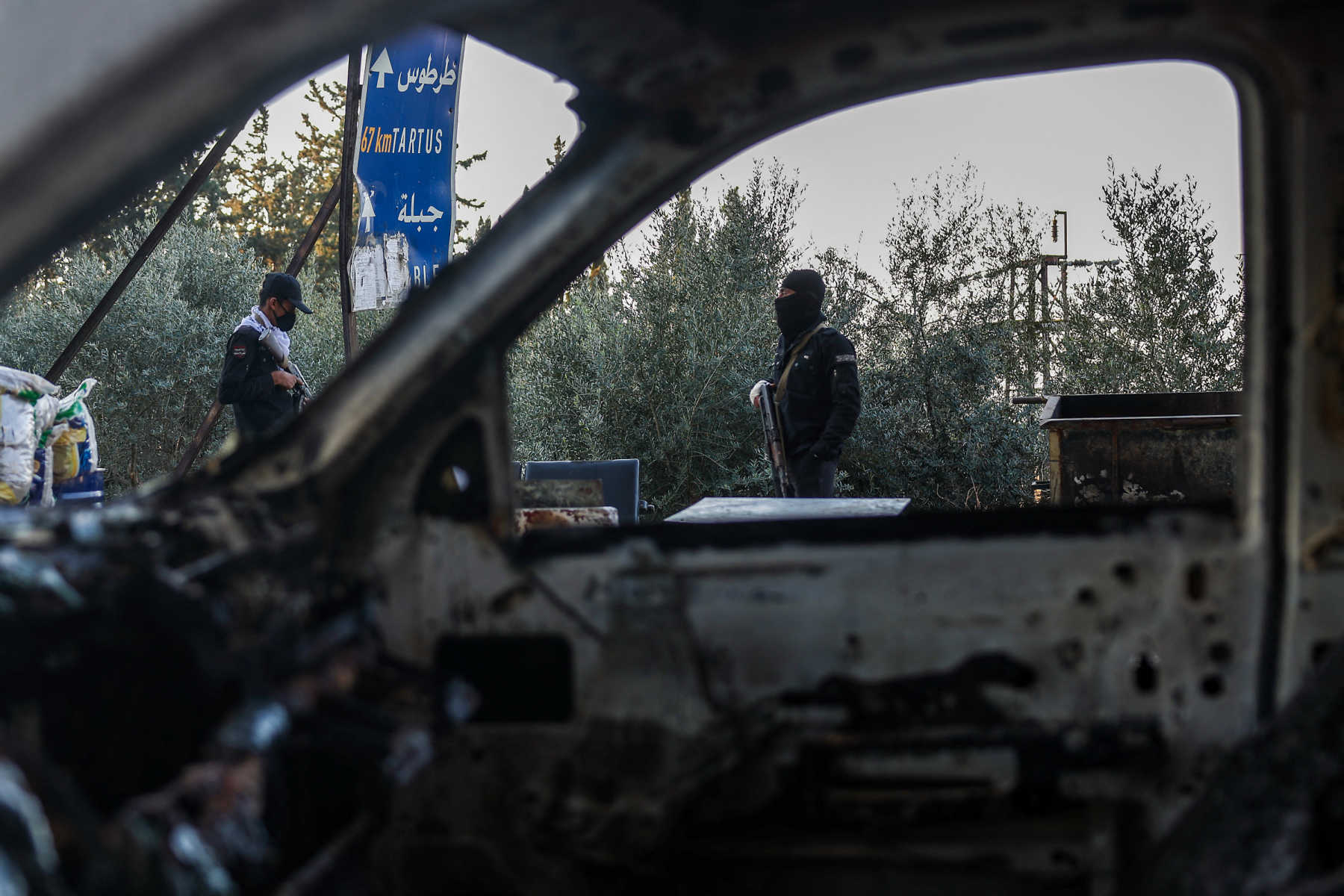Michael Lynk served as the United Nations Special Rapporteur for human rights in the occupied Palestinian territory, from 2016 to 2022. He is a non-resident fellow at DAWN.
Last month, New Zealand's former prime minister, Helen Clark, addressed the United Nations Security Council on behalf of the Elders, a group of eminent former global leaders that was founded by Nelson Mandala in 2007. Her presentation was part of the quarterly briefing to the Security Council on the implementation of Resolution 2334, which it adopted in December 2016. Among other things, Resolution 2334 had declared that Israel's settlements in East Jerusalem and the West Bank constituted a "flagrant violation under international law" and that Israel must "immediately and completely" cease all settlement activity. It directed U.N. Secretary-General Antonio Guterres to report back every three months to the Security Council on Israel's compliance with the resolution.
The implementation of Resolution 2334, Clark said, "is acutely relevant to the current devastating phase of the [Israel-Palestine] conflict" and to any chance of a two-state solution. The Security Council's failure to require Israel to obey the resolution, she warned, "poses an existential question: can the Security Council enforce its own resolutions? This is surely crucial to its credibility."
She then directed her remarks at the Security Council's five permanent members, particularly the United States: "Council members who question the binding status of these resolutions or who use their veto to protect an ally or to oppose a geopolitical rival, are eroding the Council's authority," she said. "They also undermine their own reputations and long-term interests."
In each of his 31 quarterly reports to the Security Council since early 2017 on the implementation of Resolution 2334, Guterres has stated that Israel has taken no steps to halt its settlement expansion enterprise. "Settlement activity has, nevertheless, continued," Guterres noted laconically in his latest report. When Resolution 2334 was adopted in 2016, there were approximately 615,000 Israeli settlers living in the West Bank and East Jerusalem. The population was estimated to have risen to 730,000 settlers by last year.
In her presentation to the Security Council, Clark did not mention Article 25 of the U.N. Charter, in which member states "agree to accept and carry out the decisions of the Security Council." But does the answer to her existential question lie, at least in part, in this underutilized authority of the U.N.?
Article 25 is the cornerstone provision in the U.N. Charter for ensuring international compliance with the decisions of the Security Council, along with Article 6, under which a member state that "has persistently violated" the Charter "may be expelled" from the U.N. As it was with apartheid South Africa in the 1960s and 1970s, Article 25 is the U.N.'s key trigger point for reviewing the membership status of a member state in open violation of its principles.
Tying Israel's standing as a U.N. member state to its full compliance with both international law and the U.N. Charter itself—hardly a demanding or biased standard—should become the test for Israel's continued role within the world body.
- Michael Lynk
The leading judicial commentary on Article 25 comes from the seminal 1971 advisory opinion by the International Court of Justice on apartheid South Africa's then-rule over neighboring Namibia. The ICJ's opinion held that South African rule over Namibia was a serious abuse of the mandate powers granted to it under the League of Nations after World War I, which had become a "disguised cession" that thwarted the right of self-determination for the Namibian people.
The ICJ made several important comments about Article 25, including the binding nature of Security Council resolutions. "When the Security Council adopts a decision under Article 25 in accordance with the Charter, it is for member States to comply with that decision, including those members of the Security Council which voted against it and those Members of the United Nations who are not members of the Council," the court stated. "To hold otherwise would be to deprive this principal organ of its essential functions and powers under the Charter.
The use of emphatic terms, such as "declares" or "calls upon all States," would be a "decision" of the Security Council, and therefore trigger Article 25. So would a statement in a Security Council resolution where it pronounces on the legality or illegality of a situation. The consequences of disobeying a Security Council decision are significant. As the ICJ ruled in the Namibia case: "A binding determination made by a competent organ of the United Nations to the effect that a situation is illegal cannot remain without consequence." The judges also wrote in that ruling that the court, once faced with such a situation, "would be failing in the discharge of its judicial functions if it did not declare that there is an obligation, especially upon Members of the United Nations, to bring that situation to an end."
Once a state is in defiance of a decision of the Security Council, the consequences can range from a diplomatic decision not to recognize the legality of the situation—for example, of Israel's settlements—all the way to authorizing an international armed invasion, as the U.N. did to expel Iraq from Kuwait.
Subsequent debates at the U.N. Security Council support the binding nature of its decisions, when the Council has pronounced on the illegality of a situation or an action. "We believe in Security Council resolutions," Germany's ambassador to the U.N. at the tie, Christoph Heusgen, stated in 2019, during a session devoted to the Israeli occupation of Palestine. "For us, they are binding international law. We believe in the force of international law and we do not believe in the force of the strongest," adding specifically that Resolution 2334, like other Security Council resolutions, "is binding law and that is the international consensus."
During that session, the British ambassador to the U.N., Karen Pierce, offered her support for Germany's position. "It's right that we've passed resolutions, and we are bound by those resolutions," Piece said, adding: "we all have a responsibility… to implement them, just as we do in other areas. Indeed, this is the very basis of the Council's work."
One of the leading Security Council resolutions on the application of Article 25 is Resolution 269 of 1969, in which the Council condemned apartheid South Africa for its "persistent defiance of the United Nations" and refusal to comply with a previous resolution issued just months earlier, Resolution 264, that had terminated South Africa's mandate over Namibia. Resolution 269 called on South Africa to withdraw from Namibia "immediately and in any case before 4 October 1969."
The preamble and main text of Resolution 269 made specific reference to "strict compliance" with Article 25 and need to determine "effective measures" if South Africa failed to comply with the Security Council. Of course, South Africa did refuse to comply with the directives by both the Security Council and the ICJ to end its illegal rule over Namibia. South Africa was eventually suspended from the U.N. by the General Assembly in an unprecedented vote in November 1974, but only after the United States, Britain and France had used their vetoes the month before at the Security Council to block an African-led campaign to expel South Africa from the U.N.
The Security Council's meek approach in confronting the Israeli occupation of Palestine, with a multitude of resolutions and statements followed by complete inaction, has created a sustained crisis of confidence in the U.N.
- Michael Lynk
What could all this mean for Israel and its now 57-year-old occupation of Palestinian territory? Israel has defied at least 30 resolutions of the Security Council, almost all of which would be designated as "decisions." On a number of occasions—from Resolution 271 in 1969 to Resolutions 465 and 476 in 1980—the Security Council has expressly addressed the serial refusal of Israel to obey resolutions pertaining to its occupation of Palestinian territory. In language that echoed its previous resolutions condemning apartheid South Africa for refusing to comply with the Security Council, Resolution 476 deplored "the continued refusal of Israel, the occupying power, to comply with the relevant resolutions of the Security Council and the General Assembly."
When the ICJ issued its landmark advisory opinion on the Israeli occupation this past July, the court stated unequivocally that Israel's continued presence in the occupied Palestinian territories is "unlawful," and that it is obligated to bring its occupation to an end completely and "as rapidly as possible." The court ordered Israel to "cease immediately" all new settlement activity and to evacuate all of its settlers from the occupied West Bank and East Jerusalem. Additionally, the ICJ said that all states and international organizations, including the U.N., are obligated not to recognize Israel's unlawful presence, nor to render aid or assistance in maintaining the occupation. The Court held that Israel was in breach of various jus cogens norms of international law, including the denial of Palestinian self-determination and the prohibition against the acquisition of territory by force.
While the advisory opinion is not legally binding, it is grounded in the principles of modern international law and represents one of the most significant decisions in the history of the U.N.'s highest court, which was established with the U.N. in 1945. Israel immediately called the ICJ's opinion "politically biased" and "detached from reality," and made clear that it had no intention of complying with its directions.
Last month, when the General Assembly overwhelming adopted a resolution welcoming the ICJ's ruling and denouncing Israel's "continued and total disregard" of previous U.N. resolutions and its obligations under the U.N. Charter, Israel's ambassador claimed the resolution was an example of "diplomatic terrorism."

A major crisis is now looming on the diplomatic horizon because of Palestine and Gaza, as Secretary-General Antonio Guterres acknowledged in his address to the General Assembly in September. "We can't go on like this," he said, "a world of impunity where violations and abuses threaten the very foundation of international law and the U.N. Charter." Too many governments, he warned, "feel entitled to a 'get out of jail free' card… They can turn a blind eye to international rights conventions, or the decisions of international courts. They can thumb their nose at international humanitarian law. They can invade another country, lay waste to all societies… and nothing will happen."
The diplomatic clock on Israel's complete withdrawal from the Palestinian territories will ring its alarm next September. Given the virtually certainty that Israel will not comply with the General Assembly's resolution, and the equally strong certainty that the U.S. will threaten or issue a veto at the Security Council respecting any resolution that would lay out consequences for Israel's continued defiance of international law and U.N. resolutions, the question becomes: What can be done to advance Palestinian self-determination and ensure a complete end to the Israeli occupation?
Any answer must be understood within the emergence of a new, more dynamic paradigm regarding Israel, Palestine and international law. The mounting recognition of the realities of Israel and its occupation—that it has little regard for international law or the U.N., that it intends to maintain its interminable subjugation of the Palestinians as an integral part of its system of annexation and apartheid, and that its American patron is losing diplomatic clout through its complicit support for this forever occupation—is deepening the political fault lines between the Global South and the Global North. We are moving from a framework of realpolitik to address the question of Palestine, exemplified by the Oslo Accords, to a rights-based framework, grounded in international law and human rights.
Article 25 is not a complete answer to what can, and should, be done to bring Israel into full compliance with its obligations as a U.N. member state. Any actions would have to start imposing a cost for Israel's unlawful occupation, as the almost complete lack of accountability over the past five decades by the international community has culminated in apartheid and a plausible genocide. Economic sanctions by other U.N. member states, a halt to weapons sales, a complete ban on settlement goods and investments, political and legal support for the request by the chief prosecutor of the International Criminal Court for arrest warrants against Israeli Prime Minister Benjamin Netanyahu and Defense Minister Yoav Gallant, along with three leaders of Hamas, and backing for South Africa's case against Israel at the ICJ accusing it of violating the Genocide Convention, are all important steps.
But Article 25 can be a significant part of the answer. Tying Israel's standing as a U.N. member state to its full compliance with both international law and the U.N. Charter itself—hardly a demanding or biased standard—should become the test for Israel's continued role within the world body. This is a matter of the highest concern for the United Nations, as the General Assembly has repeatedly said that the U.N. bears a "permanent responsibility" for the question of Palestine until it has been resolved in all its aspects in accordance with international law and U.N. resolutions. The American veto at the Security Council will ensure that Israel would not be expelled from the U.N., but the General Assembly has the authority to unseat Israel, as it did 50 years ago with apartheid South Africa.
The demand that Israel comply with Article 25 or face the consequences of Article 6—that a member state "which has persistently violated" the principles of the U.N. Charter "may be expelled" from the U.N.—may ignite a major diplomatic crisis for the world body. But, in many ways, the U.N.'s meek approach in confronting the Israeli occupation of Palestine, with a multitude of resolutions and statements followed by complete inaction, has already created a sustained crisis of confidence in the U.N.'s ability to resolve the oldest item on its agenda, and therefore other conflicts and challenges around the world.
















![Security forces loyal to the interim Syrian government stand guard at a checkpoint previously held by supporters of deposed president Bashar al-Assad, in the town of Hmeimim, in the coastal province of Latakia, on March 11, 2025. Syria's new authorities announced on March 10, the end of an operation against loyalists of deposed president Bashar al-Assad, after a war monitor reported more than 1,000 civilians killed in the worst violence since his overthrow. The Syrian Observatory for Human Rights said the overwhelming majority of the 1,068 civilians killed since March 6, were members of the Alawite minority who were executed by the security forces or allied groups. (Photo by OMAR HAJ KADOUR / AFP) / “The erroneous mention[s] appearing in the metadata of this photo by OMAR HAJ KADOUR has been modified in AFP systems in the following manner: [Hmeimim] instead of [Ayn Shiqaq]. Please immediately remove the erroneous mention[s] from all your online services and delete it (them) from your servers. If you have been authorized by AFP to distribute it (them) to third parties, please ensure that the same actions are carried out by them. Failure to promptly comply with these instructions will entail liability on your part for any continued or post notification usage. Therefore we thank you very much for all your attention and prompt action. We are sorry for the inconvenience this notification may cause and remain at your disposal for any further information you may require.”](https://dawnmena.org/wp-content/uploads/2025/04/syria-22039885951-350x250.jpg)










![Security forces loyal to the interim Syrian government stand guard at a checkpoint previously held by supporters of deposed president Bashar al-Assad, in the town of Hmeimim, in the coastal province of Latakia, on March 11, 2025. Syria's new authorities announced on March 10, the end of an operation against loyalists of deposed president Bashar al-Assad, after a war monitor reported more than 1,000 civilians killed in the worst violence since his overthrow. The Syrian Observatory for Human Rights said the overwhelming majority of the 1,068 civilians killed since March 6, were members of the Alawite minority who were executed by the security forces or allied groups. (Photo by OMAR HAJ KADOUR / AFP) / “The erroneous mention[s] appearing in the metadata of this photo by OMAR HAJ KADOUR has been modified in AFP systems in the following manner: [Hmeimim] instead of [Ayn Shiqaq]. Please immediately remove the erroneous mention[s] from all your online services and delete it (them) from your servers. If you have been authorized by AFP to distribute it (them) to third parties, please ensure that the same actions are carried out by them. Failure to promptly comply with these instructions will entail liability on your part for any continued or post notification usage. Therefore we thank you very much for all your attention and prompt action. We are sorry for the inconvenience this notification may cause and remain at your disposal for any further information you may require.”](https://dawnmena.org/wp-content/uploads/2025/04/syria-22039885951-360x180.jpg)









